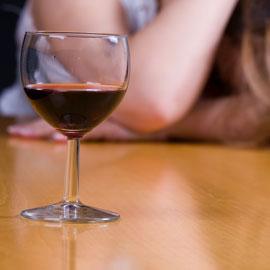 Why alcohol may be contributing to the symptoms of your GERD in Macon
Why alcohol may be contributing to the symptoms of your GERD in Macon
If you have GERD, you may have attributed your symptoms to a number of the usual suspects, like orange juice, tomato sauce, spicy chili or an oversized helping of peppermint ice cream. Fatty, spicy or acidic foods are often the culprits of reflux symptoms and sometimes get the brunt of the attention. However, if you’ve been suffering from GERD in Macon and eliminating these foods has not provided you with relief, you may want to start paying a little more attention to what you’ve been drinking than what you’ve been eating.
Because GERD can be impacted by so many different factors, it is often difficult to pinpoint the exact catalyst for each symptomatic episode. We’re quick to blame the meal we ate, the stress we feel or a faulty barrier between our esophagus and stomach, but if you regularly consume alcoholic or caffeinated drinks, you may be fanning the flames of GERD without even realizing it.
Why does alcohol contribute to GERD?
Because alcohol temporarily relaxes the muscular ring that separates your esophagus from your stomach (known as the lower esophageal sphincter or LES), hitting the bottle can create an opening for stomach acid to pass through. Alcoholic beverages can also increase the production of acid in the stomach and weaken the contractions that move food down your esophagus. Drinking alcohol close to bedtime may be especially problematic, as this can cause you to lose sleep thanks to serious nighttime GERD flare-ups.
Long-term, frequent consumption of alcohol is known to cause damage to many different body systems, including those that affect GERD. In addition to exacerbating reflux symptoms, drinking in excess may actually contribute to the development of GERD by creating abnormalities in LES pressure and the functionality of your esophagus.
We’ve already told you about the detrimental effects that drinking caffeinated drinks can have on GERD, but chronic alcohol consumption can be just as harmful. Even if you don’t drink heavily, or don’t believe your GERD symptoms to be caused by alcoholic beverages, limiting or discontinuing your consumption of alcohol can help you keep reflux symptoms at bay and prevent the sorts of circumstances that lead to serious discomfort.
If you suffer from GERD in Macon, talk to your GERD specialist about the benefits of giving booze the boot. For all individuals who struggle with reflux symptoms, drinking alcohol is inadvisable, but quitting is sometimes easier said than done. Remember: just as you sought the help of your GERD specialist to deal with reflux, overcoming alcohol addiction often requires the assistance of a qualified professional. To learn more about alcohol recovery programs, contact a Macon rehab help center today.

Leave a Reply